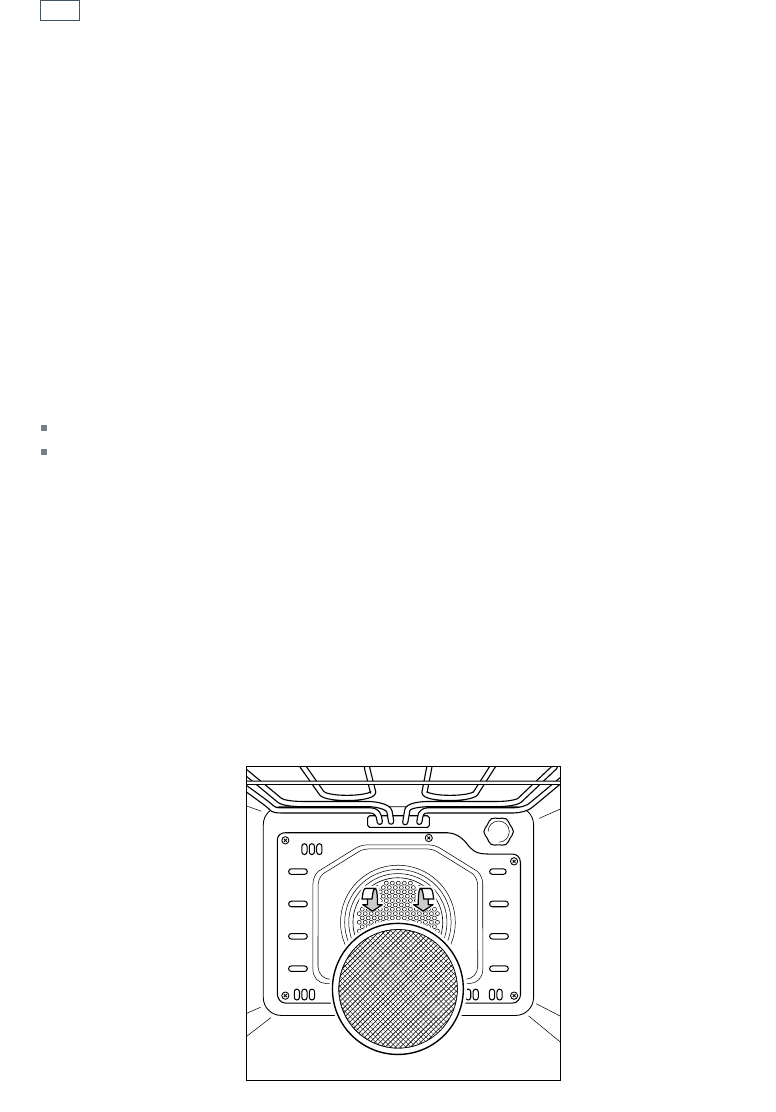
42
Care and cleaning
Cleaning the enamel cavity
Clean the enamel on the inside of the oven when it has cooled down, using household
detergents or an ammonia-based cleaner. You may use ‘off the shelf’ oven cleaners, if you
carefully follow the manufacturers’ instructions.
Caring for the catalytic panels (some models only)
The catalytic panels are covered with a special microporous enamel which absorbs and does
away with oil and fat splashes during normal cooking over 200 °C. If, after cooking very fatty
foods, the panels remain dirty, heat the oven on maximum for an hour to an hour and a half,
and they will self-clean. The side panels are reversible. Make sure that you replace them with the
arrow up, and on the correct side. To remove the side catalytic panels, you first need to unscrew
the side racks. See Fig. 41.
When you replace the panels, make sure that:
The arrows are pointing upwards.
The panel with the hole in it is on the left oven wall, so that there is a hole for the oven lamp.
Do not put the catalytic panel without the hole over the oven lamp.
Then screw the side racks back onto the oven wall.
Note: in some models, the back panel of the oven is also a catalytic panel, but this is not
reversible and should not be removed.
Cleaning the fat filter (single and tower models and double lower oven)
Clean the fat filter after every use. If the filter is not cleaned, it will block and shorten the life of
the fan element. If it is lightly soiled, place the filter in a dishwasher on normal wash. If the filter
is very dirty, place in a saucepan with either two tablespoons of clothes washing powder, or one
tablespoon of dishwashing powder. Bring to the boil and leave to soak for at least 30 minutes.
Rinse the filter in clean water and dry.
Fig.44 Fat filter


















